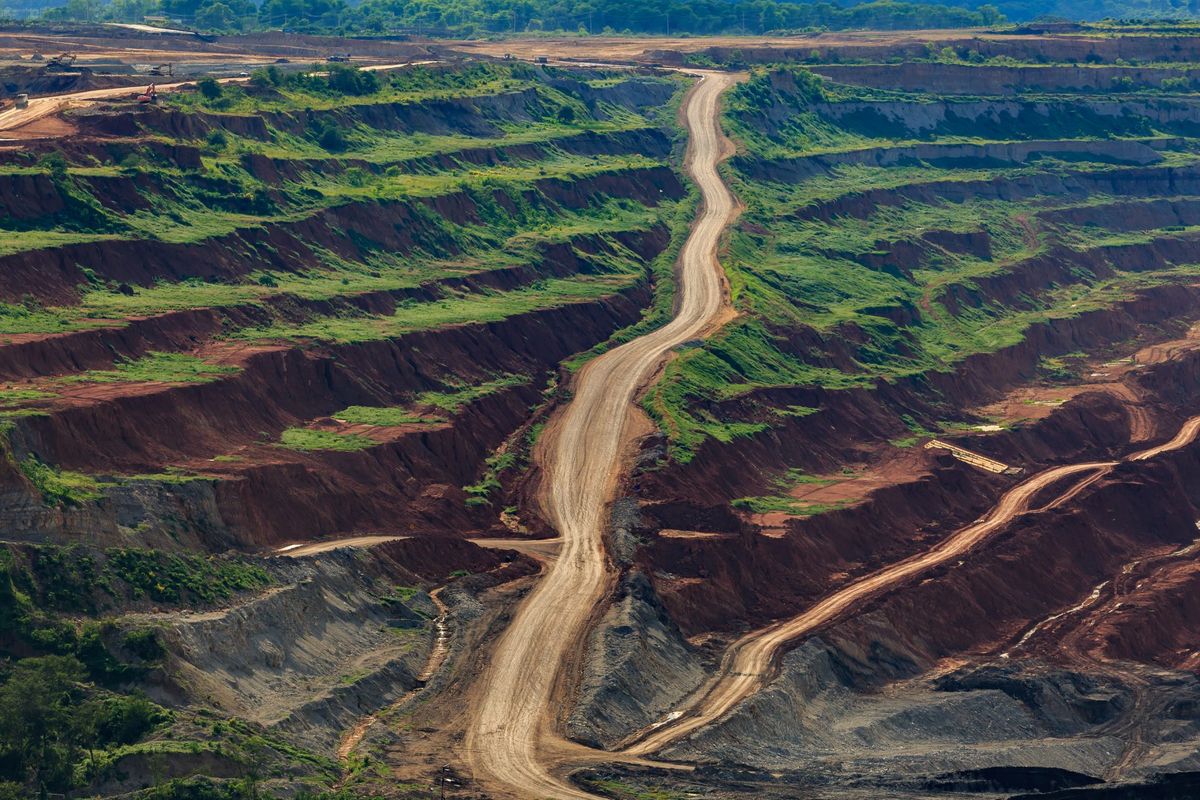
Summary
Urgent action is essential to curb damaging climate change, top senior stakeholders from Europe and around the world told the Friends of Europe ‘Climate and Energy Summit’ on 18 October in Brussels.
Discussed were the impacts of climate change, exacerbating the intensity and frequency of extreme events such as hurricanes, heavy monsoons and floods. The Intergovernmental Panel on Climate Change (IPPC) report ‘Global Warming of 1.5°C’, released two weeks ago, noted “rapid, far-reaching and unprecedented changes” are needed for the world to meet the 1.5°C goal.
Daniela Jacob, Director of the Climate Service Center Germany (GERICS) and coordinating lead author of the latest IPCC report, warned: “If the world keeps global warming to 1.5°C above pre-industrial levels, global carbon emissions must decline by about 45% between 2010 and 2030 and hit ‘net zero’ by 2050.”
Timing is critical – and Hans Van Steen, European Commission Acting Director for Renewables, Research and Innovation, Energy Efficiency, told the audience the Commission was on track to propose its decarbonisation strategy for 2050.
“2050 is good, but the next two to five years really matter in terms of how we get to 2050 and beyond,” said Dharmendra Kanani, Director of Insights at Friends of Europe.
Digitilisation will be a major enabler in this energy transition, Bernard Sahla, Chief Technical Officer and Senior Executive Vice-President of the EDF (Electricité de France) Group continued, emphasising: “Conventional generation has to move.”
As COP24 in Katowice, Poland, approaches, one key outcome from the conference was to aim towards strong implementation of the Paris Agreement and to ensure Europe is aligned with the latest IPCC report and so be ready for bold and ambitious action.
Taking ambitious climate action could yield a direct economic gain of $US26 trillion compared to a business-as-usual scenario, and generate over 65 million new low-carbon jobs through to 2030, Helen Mountford, Director of Economics at the World Resources Institute, noted. “And we would have 700,000 fewer premature deaths.”
“There is so much positive energy,” concluded UNFCCC Deputy Executive Secretary Ovais Sarmad. “What the EU strategy needs to do now is visualise this and take forward policy in a sustainable way.”
About
Although 2018 is a decisive year for climate action and cooperation, signs of division hamper the global process. The writing of the Paris Rulebook and the release of the special report of the IPCC will determine the pathways to take and the investments to make. The energy landscape is being transformed, and disruptive technologies articulated by digitalisation allow improved efficiency and sustainability. It is time for Europe to outline a new industrial policy for decarbonisation, with long-term ambition and targets sufficiently bold to lead the transition.
- How can we ensure countries turn objectives into ambitious policies and long-term decarbonisation plans?
- How do we remove the roadblocks for scaling to market? How will technological advancements transform the energy landscape of tomorrow?
- What should we expect from the EU long-term strategy and how can we make sure it takes into account the various industry sectors?
This high-level annual summit will bring together an exciting mix of high-level speakers and a few hundred participants, including policymakers, academics, business leaders, civil society representatives and members of the international press from Europe and beyond.
Schedule
Despite strong momentum to write the ‘Paris Rulebook’ by December 2018, the ‘Facilitative Dialogue’ is showing signs of weakness. This comes at a time when the IPCC with its Special Report has demonstrated that actions prior to 2020 are vital in our fight against climate change and its consequences – the damage of failing to limit global warming to 1.5°C compared to 2°C is estimated at $20 trillion alone. While the Paris Agreement was ratified three years ago, differences between the continents exist, influencing the ability of individual countries to increase their ambitions on climate and energy. Whether at European level or between developed and developing countries, expectations are different and thus difficult to fulfil. Climate finance to developing countries is not yet on the table, and decarbonisation pathways between Western and Eastern Europe weaken international cooperation. COP24 in Katowice, Poland, will therefore be a timely and decisive opportunity to establish a shared global vision on climate, and an opportunity for the EU to demonstrate its unity and leadership.
- How can we ensure countries turn objectives into ambitious policies and long-term decarbonisation plans?
- Can new alliances strengthen the international community by helping national leaders meet common and individual climate targets?
- How can we improve the structure of international discussions to engage the private sector in the global fight against climate change?
Speakers
Daniela Jacob
Lead Author of the IPCC Special Report on the Impacts of Global Warming of 1.5°C and Director of the Climate Service Center Germany
Melanie Kenderdine
Principal of the Energy Future Initiative and former Director of the Office of Energy Policy and Systems Analysis at the US Department of Energy (2013-2017)
Mauro Petriccione
Director-General at the European Commission’s Directorate-General for Climate Action
Frank Rijsberman
Director-General at the Global Green Growth Institute (GGGI), Seoul
Clean technologies are being developed and the associated costs are plunging. This domino effect is critically transforming the world we live in and is providing an answer to many societal challenges. In recent years, considerable progress and discoveries in developing disruptive technologies have been made to foster and accelerate the energy transition. Big data, blockchain technology and artificial intelligence are just some examples of digital innovations helping to reduce the amount of energy use, designed to be efficient and cost-effective while providing a wide range of services from security of supply to advanced models of energy transmission and storage. The digitalisation of energy infrastructures and systems is creating a breakthrough moment for achieving sustainability objectives. The deployment and adoption rate of these technologies will have a significant effect on the way the private sector can do their part – with the right incentives from policymakers – and adapt to contemporary challenges. This transformation will define both the energy landscape of tomorrow and the budget allocated to research and innovation, the guiding principle of strong and linear decarbonisation pathways.
- What policies are more effective in supporting the switch towards cleaner energy technologies? Is the policy environment in step with technological development?
- What will be the future for high-priority dispatch for renewables – and how can we ensure a level playing field for all energy sources while continuing to reduce emissions?
- How do we remove the roadblocks for scaling to market? How will technological advancements transform the energy landscape of tomorrow?
Speakers
Kirsten Dunlop
Chief Executive Officer at EIT Climate-KIC
Luc Goossens
CTO ENGIE Research at ENGIE
Helen Mountford
Vice-President for Climate & Economics at the World Resources Institutes (WRI)
Bernard Salha
Senior Executive Vice President of EDF Group, President of EDF Research and Development
The EU is looking for cost-efficient ways to make its economy more climate-friendly and less energy-consuming. To achieve this, the bloc has defined climate and energy targets for 2020 and 2030. Nevertheless, to give guidance and certainty to the private sector and investors, it also has to define a 2050 long-term strategy for decarbonisation and thus review its 2011 roadmap. Failing to acknowledge the underlying consequences of not decarbonising Europe’s industries and coal regions could come at a very high price. By the end of 2018, Europe is expected to propose a concrete roadmap, thus giving impetus to European countries through legislation. Shifting all investments towards clean, resource efficient and a net carbon economy has become a necessity and sustainable finance a way to achieve it. The prospect of industrial decarbonisation will be patchy as it is the responsibility of each European country as well as private sector companies involved to present not only their own strategies to decarbonise their economies, but also the future prospects of their core industries.
- How can disruptive national leadership and a clear political vision reinforce European long term strategy for industrial decarbonisation?
- What will the next phase of the decarbonisation roadmap look like – and can a Europe wide coherent climate policy be implemented?
- What should we expect from the EU long-term strategy and how can we make sure it takes into account the various industry sectors?
Speakers
Erica Hope
Senior Associate at the European Climate Foundation (ECF)
François-Régis Mouton
Chair of GasNaturally Steering Committee
Hans Van Steen
Acting Director for Renewables, Research & Innovation and Energy Efficiency at the European Commission Directorate General for Energy
Ovais Sarmad
Deputy Executive Secretary at the UNFCCC
Marco Waas
Director RD&I and Technology at Nouryon
Speakers
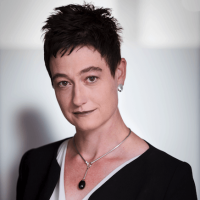
Chief Executive Officer at EIT Climate-KIC
Kirsten Dunlop’s career spans academia, consulting, banking, insurance, strategy, design, innovation and leadership. She is committed to shaping and placing innovation to catalyse profound systemic change and is honoured to work with Climate-KIC’s world-class network of partners to support climate innovation across Europe and beyond. Prior to roles at Second Road, KPMG and Suncorp in Australia, Dunlop worked in the UK and Italy for 15 years. In Italy, she led the Generali Group Innovation Academy for Assicurazioni Generali, pioneering proprietary thinking in the areas of strategic risk management, strategic innovation, strategic leadership development and cultural change. Her publications include a case study in ‘The Routledge Companion to Strategic Risk Management’.

CTO ENGIE Research at ENGIE
In his current role at ENGIE, Luc Goossens coordinates all Research and Development activities related to energy and services. Prior to that, Goossens was nominated as Director in charge of Wind, Hydro and Geothermal generation within the Centralised Generation Metier of ENGIE. His team has ensured the assured transversal alignment of all development, construction and operational projects in these technologies over the 24 ENGIE Business units with, an installed capacity of 21 GW renewables worldwide. He was also the Department Manager for Electrabel Nuclear Power Plants projects where he led the project team on engineering & construction management of modification projects.

Senior Associate at the European Climate Foundation (ECF)
Erica Hope is a Senior Associate at the European Climate Foundation, where she leads the cross-sectoral ‘2050 Task Force’ and governance programme seeking to build knowledge, political strategies and coalitions to drive the transition to a net zero emissions society by mid-century. Erica has previously worked for the energy efficiency and UK programmes of the ECF, and before that led the policy and advocacy activities of NGO network Climate Action Network Europe on energy efficiency. She was also a researcher to Green MEP Caroline Lucas, and has worked at the Institute for Public Policy Research in London.
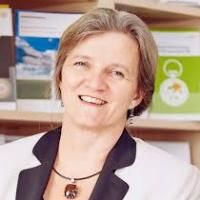
Lead Author of the IPCC Special Report on the Impacts of Global Warming of 1.5°C and Director of the Climate Service Center Germany
Daniela is Director of the Climate Service Center Germany and visiting professor at Leuphana University, Faculty of Sustainability. She serves as a member of the European Commission’s Mission Board on ‘Adaptation to Climate Change including Societal Transformation’ and was one of the coordinating lead authors of the IPCC Special Report on the impacts of global warming of 1.5°C above preindustrial level and one of the lead authors of the IPCC Fifth Assessment Report. Additionally, she serves as the Chair of the German Committee for Sustainability and she is a member of several other committees. Daniela is also Editor-in-Chief of ‘Climate Services’, a scientific journal she founded together with the Elsevier publishing house.
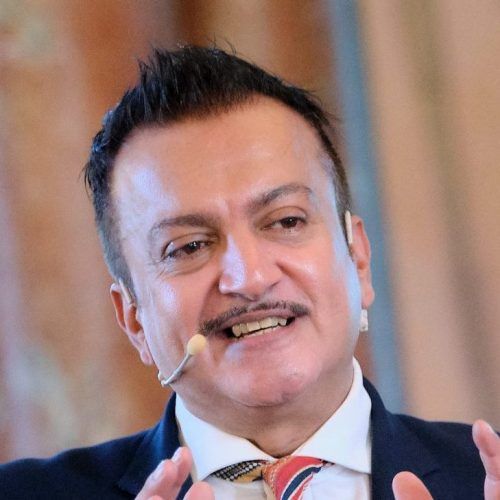
Chief Operating Officer and Chief Spokesperson of Friends of Europe
Prior to joining Friends of Europe, Dharmendra Kanani was director of policy at the European Foundation Centre (EFC). He was the England director at the Big Lottery Fund, the largest independent funder in the UK and fourth largest in the world. Dharmendra has held senior positions in the public and voluntary sectors and advisor to numerous ministerial policy initiatives across the UK.

Principal of the Energy Future Initiative and former Director of the Office of Energy Policy and Systems Analysis at the US Department of Energy (2013-2017)
Passionate about the energy market, Melanie Kenderdine served as Director of the Office of Energy Policy and Systems Analysis and Energy Counsellor to Secretary Moniz. Prior to these posts, she worked as the Executive Director and Associate Director for the MIT Energy Initiative (MITEI). During her six-year tenure at MITEI, she helped raise over $500mn from industry and private donors for energy research and education. Kenderdine was the Vice President of Washington Operations for the Gas Technology Institute and also served as a political appointee in President Bill Clinton’s administration. Kenderdine has recently been appointed as Principal of the Energy Future Initative, a US not-for-profit organisation dedicated to driving innovation in energy tech, policy and business models.

Vice-President for Climate & Economics at the World Resources Institutes (WRI)
Helen Mountford is an environmental economist focused on helping governments, companies and civil society address climate change. Mountford previously worked as Deputy Director of Environment for the Organisation for Economic Co-operation and Development (OECD), where she headed the work on green fiscal reform, climate change finance and economics, fossil fuel subsidy reforms, water pricing, biodiversity incentive measures, and economy-environment outlooks and modelling.
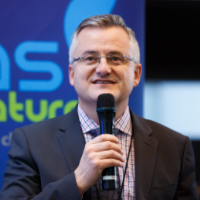
Chair of GasNaturally Steering Committee
François-Régis Mouton founded GasNaturally in 2011. He is currently the Chair of GasNaturally Steering Committee and Europe’s Director of the global oil and gas industry trade association (IOGP). Previously, he held various positions in the exploration and production, gas and power branches of Total in France, Africa, Belgium and the United Kingdom. Mouton was also appointed at the World Bank Group partnership on “Global Gas Flaring Reduction”, where he launched zero flaring policies in Qatar and regional cooperation in the Gulf Of Guinea. He also served as Vice-President for Gas Advocacy of Total in Brussels.
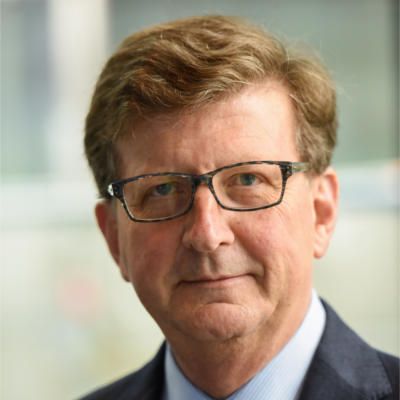
Director-General at the European Commission’s Directorate-General for Climate Action
Mauro Petriccione worked extensively on EU trade policy before joining the Directorate-General for Climate Action, covering a wide range of activities and negotiations, from trade and standards, to defence, investment, competition and dispute settlement, as well as relations with member states and European institutions. He was the deputy director-general for trade, responsible for trade relations with Asia, Latin America and countries of Africa, the Caribbean and the Pacific. Petriccione also served as chief negotiator for the EU-Canada Comprehensive Economic and Trade Agreement, the EU-Vietnam Free Trade Agreement and the EU-Japan Economic Partnership Agreement.
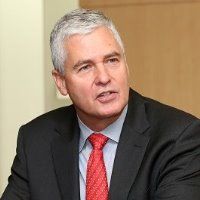
Director-General at the Global Green Growth Institute (GGGI), Seoul
Frank Rijsberman leads the Global Green Growth Institute (GGGI) in supporting a government transition to a model of economic growth that is both environmentally sustainable and socially inclusive. With over 30 years’ experience in addressing the challenges of environmental sustainability and poverty reduction with leading international organisations and philanthropic foundations, Rijsberman was appointed as the Director-General of the Institute in 2016. Prior to joining GGGI, Rijsberman served as Chief Executive Officer of the Consultative Group for International Agricultural Research (CGIAR) Consortium. In this role, he led CGIAR’s transformation from 15 independent research centres towards a single integrated organisation.
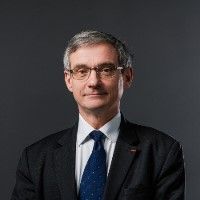
Senior Executive Vice President of EDF Group, President of EDF Research and Development
As the Chief Technical Officer at EDF Group since 2018, Bernard Salha oversees the technical operations of the company. He is also Senior Executive Vice President of EDF Group and President of EDF Research and Development. With more than 2000 researchers, EDF R&D covers all the Group’s activities, upstream in the field of generation (nuclear, thermal, hydro and renewable) and downstream in the fields of transport and distribution grids, energy management and customer relationships. Previously, after having held various senior positions in engineering units at EDF, he served as Director of the Nuclear Engineering Division. Following his experience at the French Ministry of Defence, Salha participated in China’s Nuclear Power Program (LingAo I).
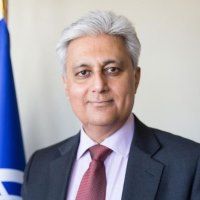
Deputy Executive Secretary at the UNFCCC
Ovais Sarmad is currently supporting the Executive Secretary in managing the operations of the United Nations Framework Convention on Climate Change (UNFCCC) Secretariat, its staff and organisational development, advising on a range of issues relating to the inter-governmental affairs and strategic planning. He previously served as Chief of Staff/Chef de Cabinet at the International Organisation for Migration (IOM) in Geneva where he worked in several management and policy capacities.
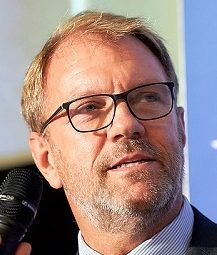
Acting Director for Renewables, Research & Innovation and Energy Efficiency at the European Commission Directorate General for Energy
An experienced professional in renewable energy support schemes, Hans van Steen currently works on providing secure, affordable and clean energy for EU citizens and businesses at the European Commission Directorate General for Energy. Prior to that, Hans served as Head of Unit with responsibilities for international energy relations and enlargement. In that capacity he was in charge of the implementation of the actions set out under the external dimension of the Energy Union Strategy.
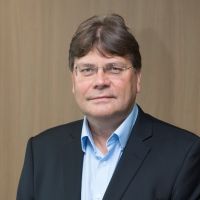
Director RD&I and Technology at Nouryon
In his current role, the responsibilities of Marco Waas include circular and bio-based economy, Industry 4.0, electrification and Open innovation. Waas is also Chairman of the Executive Board of the Institute of Sustainable Process Technology, Chairman of the Innovation Policy Committee of the Dutch Chemical Industry Association and non-executive Board member of the Icos III collaborative venture fund. Before joining Nouryon, he held the position of Dean at the Delft University of Technology where he was responsible for the Faculty of Mechanical, Maritime and Materials Engineering. He previously held several management positions at Unilever.
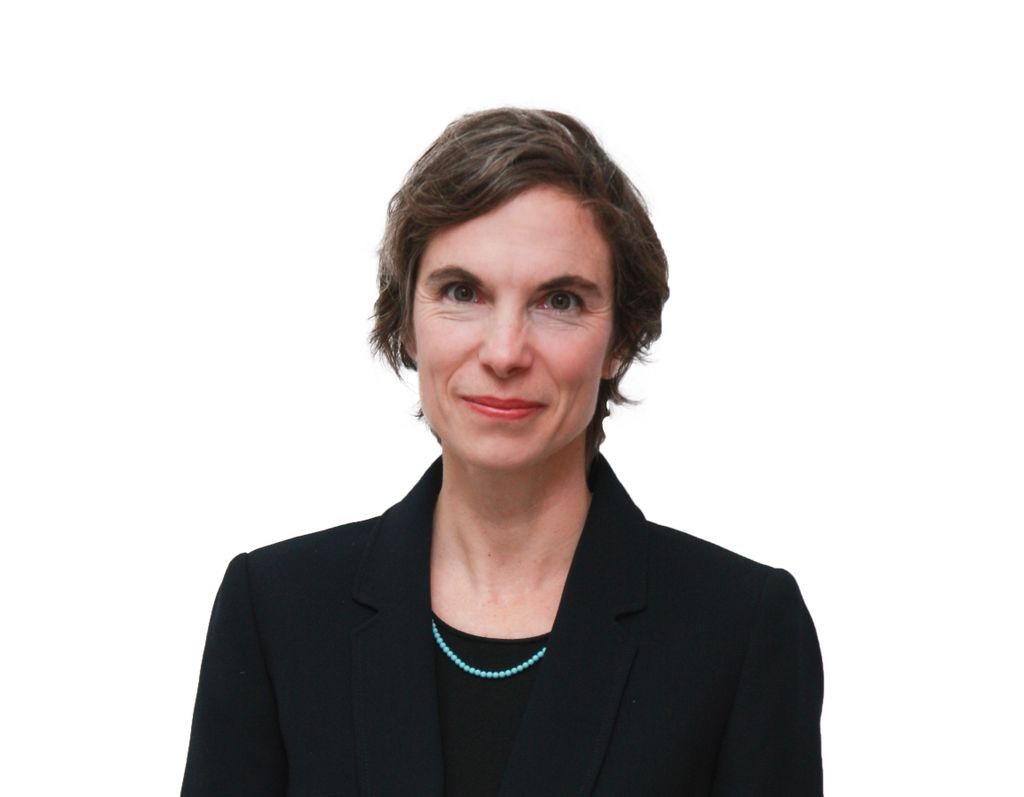
Executive Director at Change.org, Italy
Stephanie Brancaforte currently leads the world’s largest petition and activism platform, Change.org, and runs Fund Our Future, which focuses on stopping financial flows to climate-destructive projects and constructing highly consultative ‘green new deal’ initiatives.
Previously, she led Greenpeace International’s climate and energy program, overseeing the organisation’s efforts to limit global warming to 1.5 degrees. She has supported negotiations, humanitarian efforts and activist movements in the Middle East for Avaaz, the Assistance Coordination Unit of the Syrian Opposition, and at CIVICUS.
She also served as a United States diplomat based in Berlin for several years, a researcher at Amnesty International in the Great Lakes region, an investigator for the International Criminal Court, an international law adviser for the Iraqi High Tribunal in Baghdad, and taught graduate school courses at George Washington University.
Partners
Activities
Climate and Energy Summit 2025
Next event In person & livestreamed

- Area of Expertise
- Climate, Energy & Natural Resources
European Oceans Pact: is maritime transport on board?
Past event In person & livestreamed

- Area of Expertise
- Climate, Energy & Natural Resources
Staying the course: driving sustainability forward in a shifting…
Past event In person & livestreamed

- Area of Expertise
- Climate, Energy & Natural Resources
Navigating risks and enhancing resilience: charting Europe’s energy and…
Past event In person & Livestreamed

- Area of Expertise
- Climate, Energy & Natural Resources
Adaptation without mitigation is nonsense
- Category
- #CriticalThinking
- Author
- By Heïdi Sevestre
Policy Voices | Overcoming Polarisation: can communities shape the green…
- Category
- Podcast
- Area of Expertise
- Climate, Energy & Natural Resources
Energy prices coming down – is Europe on the right track?
- Category
- #CriticalThinking
- Author
- By Andris Piebalgs
Europe’s blackouts call for a NATO-level response
- Category
- #CriticalThinking
- Author
- By Maurizio Geri
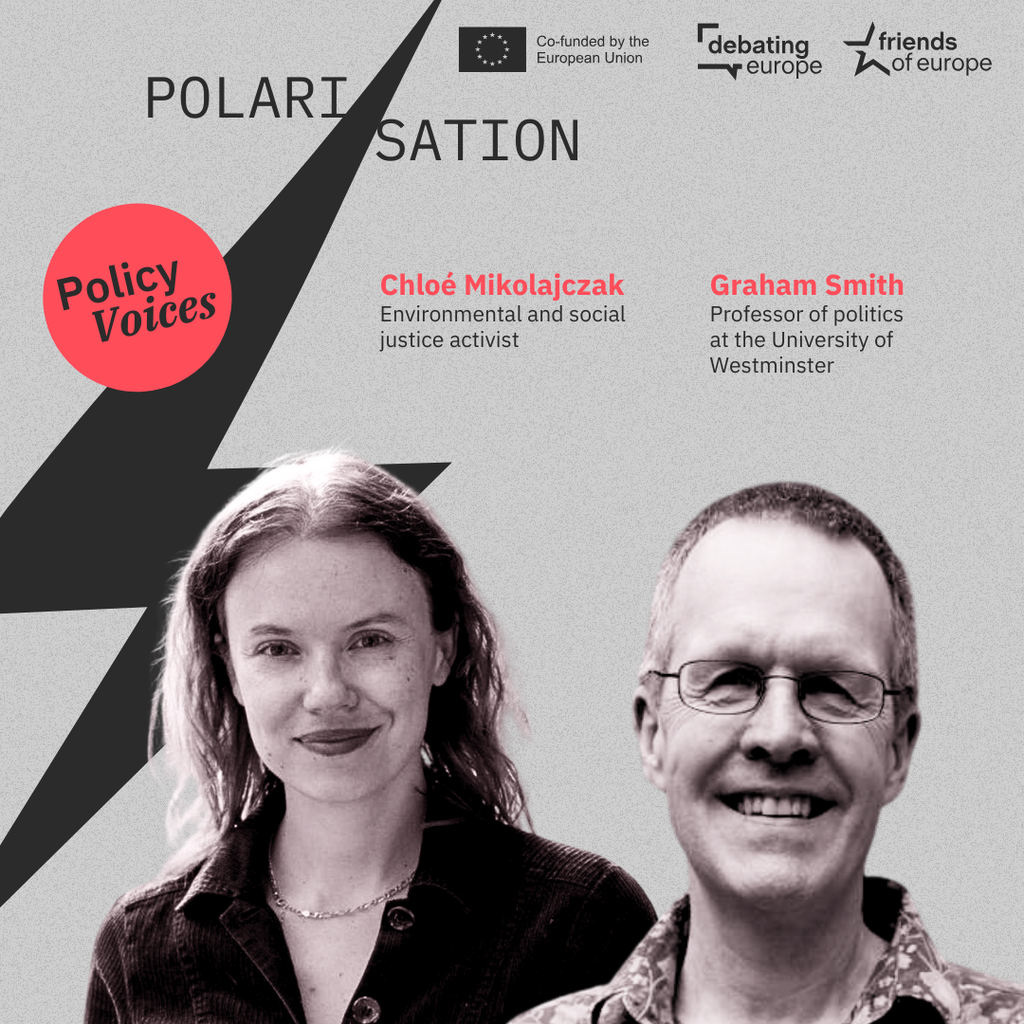
- Area of Expertise
- Climate, Energy & Natural Resources

- Area of Expertise
- Climate, Energy & Natural Resources

- Area of Expertise
- Climate, Energy & Natural Resources

- Area of Expertise
- Climate, Energy & Natural Resources
Continue
the debate on
- Debating Europe





